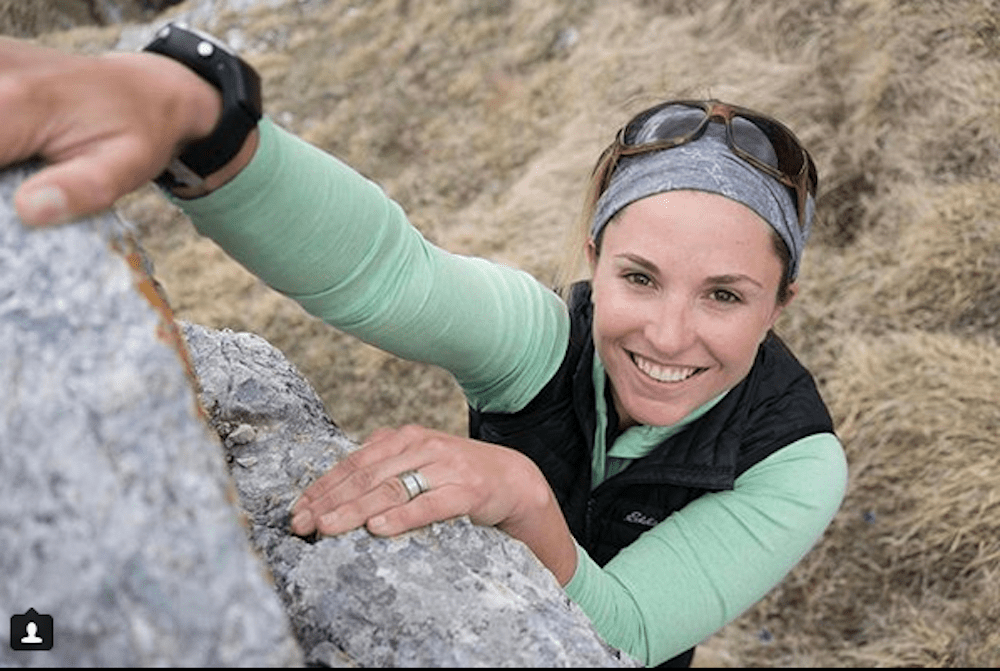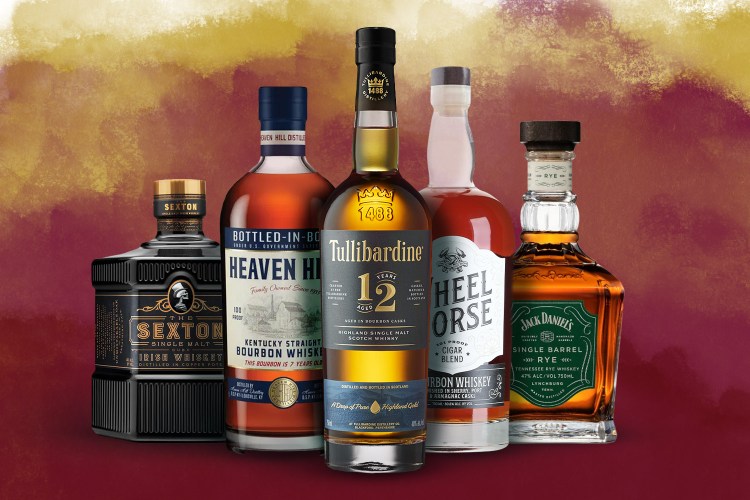In 1975 Japanese Climber Junko Tabei became the first woman to conquer Mount Everest. She overcame not only avalanches and icy knife-thin ridges but cultural stereotypes that balked at the idea of a female mountaineer scaling the world’s highest peak. The expedition she organized was composed entirely of women…minus the sherpas. She also founded the first all-female climbing club in Japan in the 70’s, an era when most women were strongly encouraged to stay home and raise kids.
Junko passed away in 2016 at the age of 77. The same year that mountaineering guide Melissa Arnot Reid fittingly became the first American woman to summit and descend Everest without supplemental oxygen.
Arnot Reid has summited the 29,000-foot mountain six times. On her historic climb, she accomplished the feat silently and without fanfare. She didn’t tell her family. She didn’t tell her sponsors. She didn’t splash it on social media. She just did it.
As a woman in a very male-dominated field, Arnot Reid has dealt with everything from condescending remarks to behavior that would anger the #MeToo movement, but she has earned respect among the peers who matters most. She has scoffed at the idea of gender roles in the arena of climbing — or anywhere else.
Arnot Reid has climbed other obstacles along the way: She’s supported herself since the age of 13. She grew up outside of Durango, Colorado with parents who appreciated and encouraged a love for nature.
Arnot Reid has been working as a mountain guide since 2004 and started her own guiding business in 2010, so for those feeling adventurous, there’s an opportunity to go into the wild with her. Her resume includes over 100 climbs of Mount Rainier, the first ascent of Mustang Himal in Nepal, various guided ascents of Aconcagua, Kilimanjaro, Ecuador Volcanoes, Colombian Andes and a slew of trekking peaks in Nepal. She’s also an Eddie Bauer-sponsored athlete and mentors young female climbing guides. Customers are in good hands.
Equally worthy of her experience in mountaineering is her dedication to the people she has come to know and love. In 2010, on a climbing expedition to Mt Baruntse in Nepal, Arnot Reid’s sherpa, Chhewang Nima, was lost in an avalanche. Nima, a well loved and respected guide had 19 Everest climbs under his belt. Knowing that families of sherpas undergo extreme hardship when the breadwinner is lost, Melissa co-founded the Juniper Fund in 2012 to provide financial assistance to the families of guides lost while working the mountains of Nepal. The fund has nurtured five businesses including restaurants and a chicken farm — all operated by the widows of lost guides. It’s a philosophy she says she learned from her father, who inspired her as a child to take some of her toys every year to a local battered women’s and children’s shelter.
The mountaineer recently sat still long enough for an interview with RealClearLife‘s Kinga Philips:
Passion is a powerful driving force for people. How did yours develop and mold who you are and what you do?
Melissa Arnot Reid: I think that passion is something that sort of finds you, and when you have it, it is unmistakable. For me, the first time I was in the big mountains I knew that I was at home. I could feel it in my bones. It has been important to maintain that passion to do what I do on the hard days and the monotonous days — when it would be easy to quit. But there is no more important thing in life than being honest about what your passion is and following it as far as it can take you.
Congratulations on your Everest summit. What was the emotion of not only summiting, but also completing the descent safely, and with your husband by your side?
MAR: It took me eight years to successfully summit Everest without supplemental oxygen. I was able to reach the summit five previous times, so I was familiar with the feelings of success, but not in the way I wanted it. For me, the feelings took a while to develop. In the moment I was so focused on returning safely but once I was down at sea level, it all started to settle that something I had worked so hard for had actually come to be. It is an amazing feeling. And sharing that with a partner you trust and love just multiplied that feeling times 1000. It was his first summit of Everest and something I am so grateful that we got to share.
You were also there during the tragic earthquake in Nepal. What stands out to you most about that day?
MAR: I was there on that horrible day. I had just come down from an acclimatization climb on a nearby peak and everything was in chaos. It took us quite a long time to learn of the total devastation because we were quite isolated in an area with no communication. I was responsible for my team of four and my focus shifted to keeping us safe and then helping anywhere that we could.
What was it like going back for the first time after the earthquake?
MAR: I returned to Nepal that summer, just a few months after the quake and one thing I will say stood out to me most was that the people in Nepal live in such a constant state of chaos that their ability to recover from something like this is incredible. They work hard and continue forward and it was incredible to see them come together for the long (and still ongoing) recovery.
Describe the feeling of climbing using the five senses to someone who might never have the chance (or guts) to do it.
MAR: Sight: It is a sort of surreal sight since you are seeing the boundaries of earth and the furthest, highest, wildest places but you are also micro-focused on the snow in front of you, the rock face you are climbing on. It’s a bit of back and forth. Sound: This really is the loudest quiet place you will ever be if that makes sense. It is the total lack of sound but the potential of all sounds. Taste: I will just use a metaphor for this one and say it tastes unsatisfied. It is the taste of hunger and knowing that you have to keep climbing to feed yourself. Smell: It is crisp and clean and something that you only can find at high altitude. Touch: It is the balance of being on hard, stable surfaces and knowing that they are alive and dynamic and your total attention is required.
Other than Everest, what have been your most inspiring accomplishments in climbing?
MAR: I think that what I do is rather ordinary, so it is hard to call it inspiring! But I have been one of the youngest and only female mountain guides to have a successful career in the Himalaya. I have spent over 20 expeditions there and a solid three years of my life. In addition to that, the thing I am the proudest of is my mentorship program and helping young girls learn how to be mountain climbers and guides.
Any favorite treks?
MAR: I love all things Nepal; every corner of that country is special. The remote Mustang region is an absolute favorite of mine.
What’s the best part of a typical post climbing evening as you settle into your tent?
MAR: Once all the chores are done you just cuddle into your warm sleeping bag. I love that feeling of being done with one day and the potential of the next day is in front of you.
Most people would be terrified to do what you do. So what terrifies you….if anything?
MAR: I am most afraid of not following my passions. I would hate to wake up one day and find out I followed someone else’s dream
How do you mentally prep for a climb? Do you have any lucky items you wear, something you always eat before, a mantra, etc.?
MAR: I think the preparation takes months if not years. You slowly ready yourself for the big things. But I do wear a Buddhist string around my neck that is a blessing and I am very systems based, so I do the same thing (right boot on first, next the left) before every climb.
Everyone has a message they put out into the world through their words, actions and lifestyle. What is yours?
MAR: Be fearless in knowing yourself and following your passions. Don’t be afraid to change your mind.
What other hobbies do you have that people might not expect?
MAR: I am a huge fan of reading, especially memoirs and surprise —true crime books!
What future life goals do you have for the next 5 years? Any big bucket list items, travels, career goals, etc.
MAR: I really want to continue to mentor my young guides in training and see them through to where their lives are blooming. And I have a few secret Himalayan objectives left, so we will just leave it at that!
Your best life advice and how climbing has helped to shape it?
MAR: Don’t live in fear. Life is dynamic and you are a member of how it unfolds. Climbing and being in nature teaches you that on such an extreme level.
This article was featured in the InsideHook newsletter. Sign up now.
























